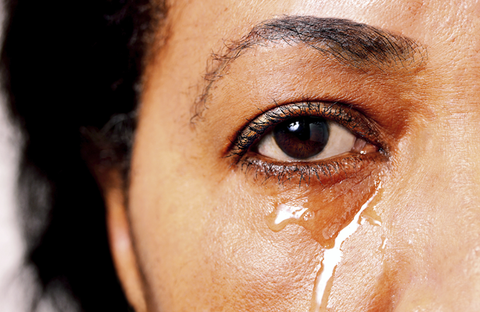How To Get Rid Of Hips
A little over three months ago, I had a hip arthroplasty, otherwise known as a Total Hip Replacement, at age 42 (OK, it was a week before my 43rd birthday, but I'm sticking with 42). I know I'm not the youngest by far to get a THR, but I am indeed below the average age of 65+ for this orthopedic procedure.
I needed it. My decrepit right hip basically gave out after years of degeneration due to congenital hip dysplasia, as though I were a Labrador. The journey to orthopedic repair and recovery was exhausting and exhilarating, and revealed several surprises.
1. Hip replacements are not just for your grandparents.
At the hospital's pre-op "hip class," I was easily the youngest by 20 years or more. But it wasn't all hobbling 90-year-olds, either. Earlier this year, the U.S. National Center for Health Statistics released information showing that the number of THRs in the United States jumped from 138,700 in 2000 to 310,800 in 2010. While surgeries in patients 75 and older increased by 92%, the increase in patients 45 to 54 was a staggering 205%. While all the reasons for the increase are not entirely known, some theorize that osteoarthritis, or a breakdown of cartilage that cushions the joints, is seen in more patients that have led more active lives than previous generations.
MORE: 6 Things Your Joint Pain Is Trying To Tell You
2. The hospital will give you sex instructions.

4774344sean/Getty Images
Ending up in the ER with a dislocated hip is bad. Even worse: having to explain that you dislocated it during sex. After a THR, you'll actually receive guidelines about which sexual positions are OK and when, diagrams included. Possibly the least-sexy sex-position illustrations ever, but you gotta hand it to them for going there. One of the hallmarks of recovery is getting back to feeling like yourself, and that includes your sexuality. You might be surprised to have to talk honestly to your partner about what you can and can't do, waiting until all precautions are lifted for full mobility. You also may not be in the mood as you get over feeling fragile.
MORE: 10 Pain-Fighting Moves You Can Do With A Tennis Ball
3. Your hip will feel better, amazingly so, even as the rest of you aches.
What's truly incredible about a hip replacement is that almost immediately, even with the swelling and discomfort that comes from surgery, your hip pain will be drastically reduced or even gone. I began a very basic series of range of motion exercises to promote blood flow while still in my hospital bed. One of the exercises involved me lying on my back and sliding one leg out laterally keeping my toes pointed at the ceiling. I gingerly slid my leg a few inches, then a few inches more, then a few inches more, stunned that the previous stabbing pain in my joint was gone. I looked over at the hospital PT assistant, stunned. "Of course it feels better; they fixed the malfunctioning hip," she said. I guess up until that point I really didn't believe that fixing the mechanical defect in my hip would actually alleviate the pain.
4. Pain medication is both your best friend and your worst enemy.
While modern pain medications are a wonder for blotting out some of the physical trauma your body has just gone through, they wreak havoc on your system, causing constipation, nausea, dizziness, loss of appetite and more.
My system hated the Oxycodone, punishing me with the worst constipation. I asked Thomas Karagianes, MD, attending anesthesiologist at Sharp Memorial Hospital in San Diego, why this happens. "This is a side effect that has been known for decades," he says. The pain medications drastically slow down your GI tract's ability to move things along. Your doctor will likely put you on a program to keep things moving, but it's a battle and hopefully one that will be re-assessed soon. "There is a movement to try and reduce the use of narcotics which have so many bad side effects," says Karagianes.
MORE: How To Beat Constipation
5. You might get bizarrely emotional.

Margoe Edwards/Getty Images
Everything before a surgery like this prepares you for the physical outcomes of the procedure: What to expect in the hospital, how long you will stay, medications required and for how long, in-home rehab, outpatient PT and how to function with limited mobility. Nothing, however, prepared me for the emotional impact of going from self-sufficient and active to basically broken.
Within five minutes of my first home care physical therapist visit, I found myself sobbing uncontrollably. "I feel so helpless and useless," I whimpered. I am normally not a big crier.
At my two week post-op appointment, I opened up to my surgeon Richard Santore, MD, about the flood of emotions. He understood all too well and said he had recently attended a conference where a speaker compared the trauma of surgery to PTSD from war veterans.
Karagianes added that "anesthesia affects your emotions, psychological state and cognition. Your emotional state is all over the map." Two variations of this side effect are Post-Operative Cognitive Disfunction (POCD), where patients can have a decrease in cognitive function, memory and attention to detail for days, weeks or months after surgery, and Post-Operative Delirium, which is exactly what it sounds like. "When you combine that with the stress of surgery in general and medications you can have a real impact," he says.
6. What you do before the surgery is as important as after.
"I always tell patients you need to understand this is a life-altering surgery—you're not getting a bunion removed," said Kay O'Brien, orthopedic program manager for Sharp Memorial Hospital. O'Brien stresses pre-operative knowledge and planning is key. Getting your house in order before you leave for the hospital can greatly impact your comfort and overall outcome.
You'll need to prepare clear pathways, free from trip hazards and a plan for working around your post-operative restrictions. "You don't think about all the things you have to bend over to get and that can be super challenging," O'Brien says. "Think about your hair dryer and pots and pans. Stocking the pantry and your medicine cabinet in advance is smart; purchase and test your adaptive equipment (like a grabber or crutches) before you even go to the hospital to minimize frustration once you are home."
MORE: 5 Ways To Sleep Better When Your Joints Hurt
7. You'll lose some independence for awhile, no two ways about it.
Helplessness is hard for us Type A people. Sure, within a few days, I could get some clothes on by myself, make a basic meal, take a shower, and get myself up and down from a chair/bed with minimal straining. However, for everything else I was dependent: I couldn't bend over past 90 degrees so that meant no cleaning/laundry; no driving so I needed a ride to everything; no walking more than five minutes at a time so I found myself waiting for the five sunniest minutes of the day to bolt outside and dutifully do my five minutes of walking therapy up and down our driveway. It drove me crazy and if I ever have a major surgery like this again I know now to be ready for it and embrace asking for help.
8. Your doctor will likely tell you you'll never run again, but that's not necessarily the last word.

Hero Images/Getty Images
I was never a great runner, but I treasured the endorphin boost that came from my pre-surgery runs. After my surgeon told me my running days were over, I sought to learn more. Turns out, there is an entire community of post-THR runners out there, determined to keep on the road.
Tom Fuchs founded HipRunner.com in 2012 as a way to document his own THR and share experiences with others. Over the years, a dedicated group of "Hip Runners" have flushed the site out into a large community of runners in all stages of the orthopedic process and is now a forum for ideas, inspiration, and resources for those seeking to run post surgery.
HipRunner.com features a link to the definitive book on the topic: "How to Run with a Hip Replacement" by Alistair McAlpine. While everyone's recovery and abilities are different, I was surprised to learn that there are more options beyond just what the surgeon tells you. I haven't gotten back to running yet, but I realize now the door may not be as shut as I once imagined.
MORE: What Boomers Should Know About Joint Replacement
9. Fixing the joint is only part of the battle.
Any type of major orthopedic surgery causes disruption to the rest of your body. In all likelihood, whatever your body has been doing to compensate for your hip pain or malfunction has also been causing problems all on its own. In my case, I battled severe muscle tightness all up and down my leg and around the hip as my body tried to align my leg into a joint that just wasn't formed correctly. Decades of muscle memory don't disappear overnight. A large bulk of my physical therapy focused on loosening those large muscles and allowing the joint to settle properly. My new hip also pushed my pelvis out just slightly, causing the femur to bear weight differently. I'm currently battling some knee pain as a result. My surgeon assures me it will go away as my body re-adjusts to the new alignment. Being prepared to battle and conquer new issues as they come up was part of the recovery process I wasn't ready for; I only thought about how the hip itself would heal.
This content is created and maintained by a third party, and imported onto this page to help users provide their email addresses. You may be able to find more information about this and similar content at piano.io
How To Get Rid Of Hips
Source: https://www.prevention.com/health/a20459894/hip-replacement/
Posted by: hixthavite.blogspot.com

0 Response to "How To Get Rid Of Hips"
Post a Comment